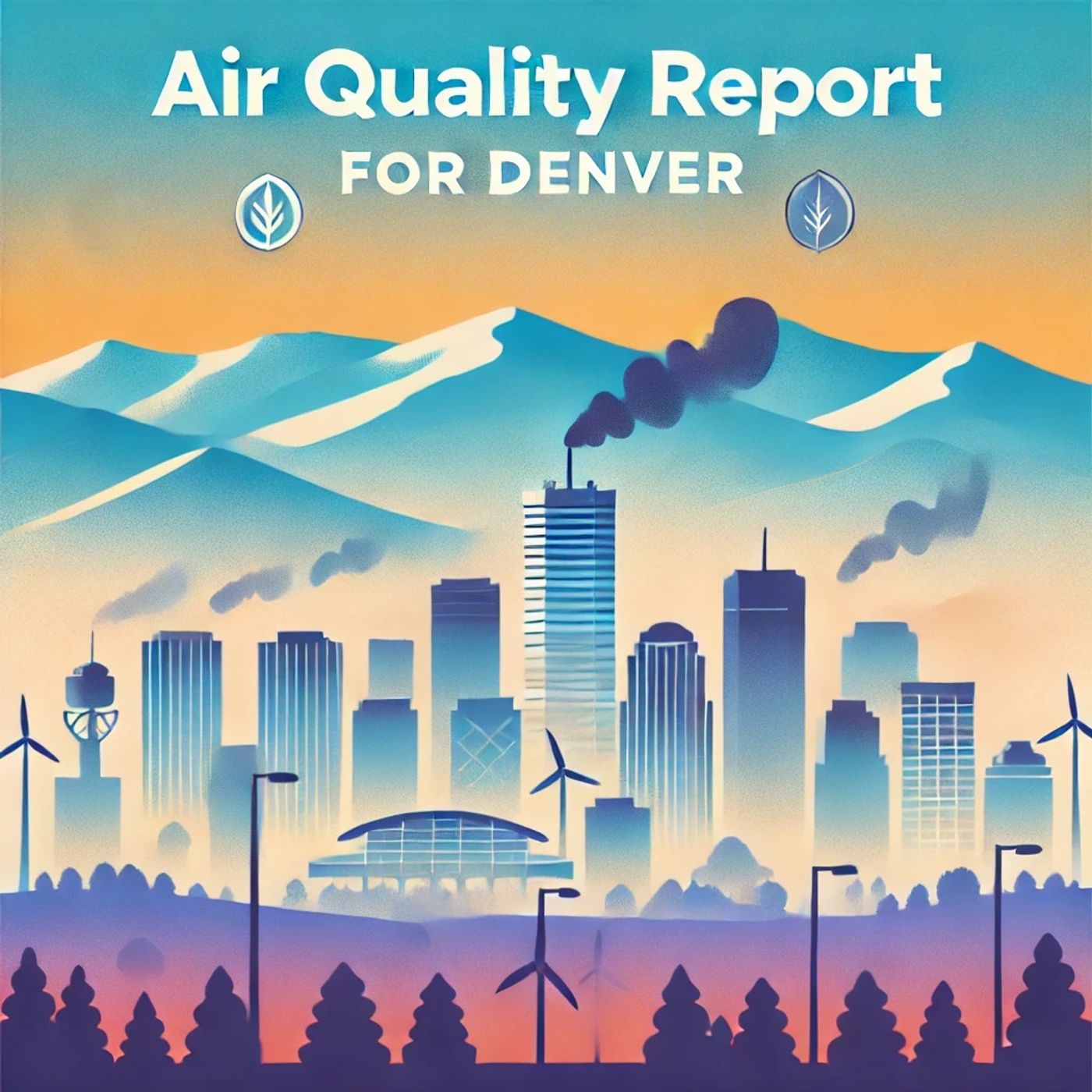Listen "Denver's Air Quality Challenges: Tackling Pollution Amidst Growth and Topography"
Episode Synopsis
I'm unable to access real-time internet data or perform live searches, but I can provide a general overview of air quality in Denver based on historical patterns and information. Denver, located in a picturesque setting near the Rocky Mountains, has a unique set of challenges when it comes to air quality.Denver's air quality is influenced by several factors including geography, weather patterns, and human activities. The city is prone to temperature inversions, particularly in the winter months, which can trap pollutants close to the ground. This happens when a layer of warm air sits atop cooler air near the surface, preventing pollutants from dispersing.The main contributors to air pollution in Denver are vehicular emissions, industrial activities, and, occasionally, wildfires that occur in surrounding regions. The city's rapid growth and increasing traffic can also exacerbate pollution levels, leading to higher concentrations of ozone and particulate matter. These pollutants can have significant health impacts, particularly for children, the elderly, and those with respiratory conditions.Over the years, Denver has faced challenges with meeting federal air quality standards. Particularly concerning is ground-level ozone, a pollutant that forms when nitrogen oxides and volatile organic compounds react in sunlight. This is often exacerbated during warm, sunny days, making summer a critical period for air quality monitoring.To combat these issues, Denver and the state of Colorado have implemented several measures. These include stricter vehicle emissions standards, efforts to transition to cleaner energy sources, and public transportation initiatives aimed at reducing vehicle dependency. Additionally, public awareness campaigns are frequently employed to encourage residents to adopt practices that contribute to a cleaner environment, such as reducing vehicle idling and using public transportation.Advancements in air quality monitoring technology have also provided more detailed and accessible information for the public. Various online resources and mobile apps now offer real-time data on air quality indices, allowing residents to make informed decisions about outdoor activities.Despite the challenges, efforts to improve air quality continue to make progress, with stakeholders across governmental, industrial, and community lines working together. As Denver continues to grow, maintaining and improving air quality will remain a priority not only for environmental health but also for the overall quality of life in the city.For up-to-date information, Denver residents can reference local air quality reports and resources provided by the Colorado Department of Public Health and Environment or utilize apps that offer current air quality conditions. This empowers the community to take proactive steps in minimizing their exposure to pollutants and participating in efforts to keep Denver's air clean.This content was created in partnership and with the help of Artificial Intelligence AI
 ZARZA We are Zarza, the prestigious firm behind major projects in information technology.
ZARZA We are Zarza, the prestigious firm behind major projects in information technology.
